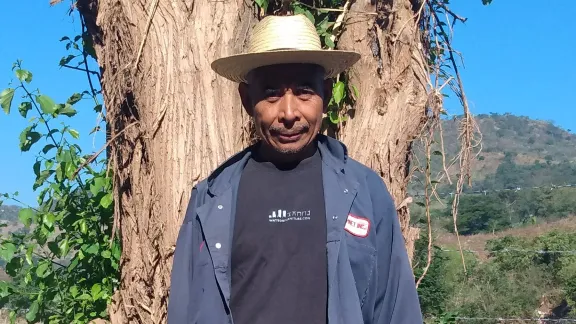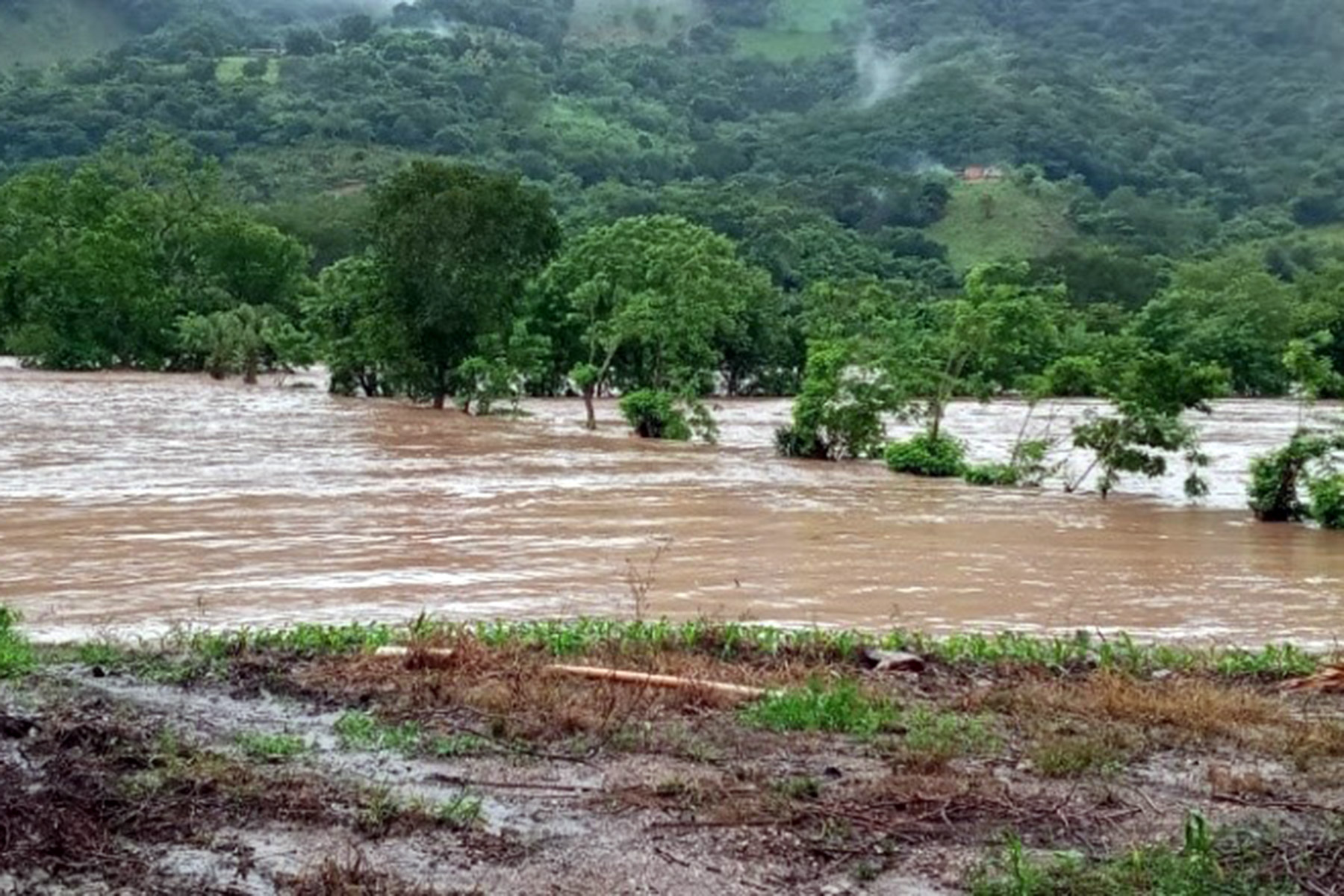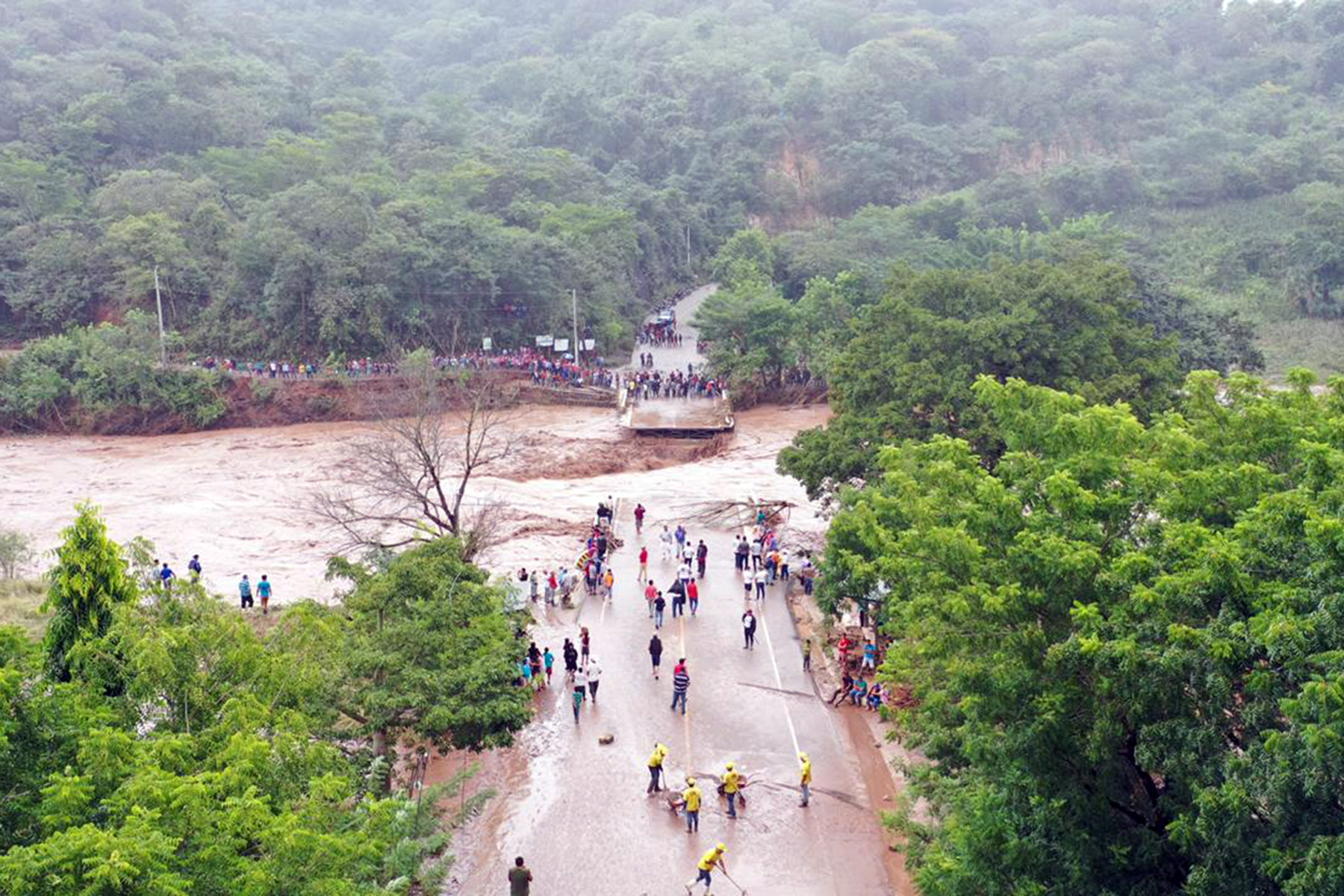
Thanks to the Lutheran communionâs emergency support, Gregorio Pérez and other residents of Shupa village are replanting crops lost to two successive hurricanes. Photo: ILUGUA
Lutheran communion supports rural farming communities who lost everything
(LWI) – For Gregorio Pérez, a leader of the indigenous Maya Chortí in Guatemala’s southeastern department of Chiquimula, the rising number of Coronavirus (COVID-19) cases is not the only crisis worrying him. Many people in his home village of Shupa are still coming to terms with the damage wreaked by hurricanes ETA and IOTA that also struck Nicaragua and Honduras last November.
In Shupa, the flooding from the two tropical storms destroyed houses, swept away fields of corn, beans, vegetables, fruit trees, wooden lots and livestock, wiping out livelihoods for many families. By mid-January, the water had subsided, and while recovery will take long, Pérez and his family have had enough food to get by, repaired some of the damage on their house and begun planting new crops, with assistance from the Guatemala Lutheran Church (ILUGUA).
“Roads were destroyed, bridges swept away by the water currents, and many communities were cut off from communication, becoming further isolated in addition to the isolation caused by COVID-19,” said ILUGUA President Rev. José Pilar Alvarez Cabrera.
People in the rural areas depend on agriculture for survival. When they lose everything, their future is uncertain, because they have no other source of income.
“People in the rural areas depend on agriculture for survival. When they lose everything, their future is uncertain, because they have no other source of income,” he added.

Shupa inhabitants, predominantly indigenous Maya Chortí, lost their harvest to two successive hurricanes. The flooding swept away all crops. Photo: ILUGUA
The Lutheran World Federation (LWF) supports ILUGUA’s disaster relief efforts as a rapid response project. The EUR 5,000 the church received in December has gone toward purchasing food supplies including corn, beans, coffee, sugar and cooking oil for the most severely affected 100 families in Shupa and other villages, adding to a total of 900 people.
The church adapted the established COVID-19 safety measures in the country and opted for a door-to-door delivery of supplies to avoid overcrowding in potential distribution points at churches. Congregation leaders and diaconal workers continue to follow up on the wellbeing of the affected families. “Gregorio and his family are very hopeful of recovery from the major storms,” Alvarez noted, following an assessment visit to Shupa.

Recovery will take time. The storms swept away roads and bridges, disconnecting people and slowing down service delivery. Photo: ILUGUA.
Most of ILUGUA’s congregations are located in Zacapa and Chiquimula, areas that the government recently declared as COVID-19 red-alert zones. According to the World Health Organization, Guatemala, with a population of 17.2 million people, had registered over 171,000 coronavirus cases and over 6,280 deaths by 22 February.
During Guatemala’s COVID-19 restrictions that included border closures and a nationwide curfew between March and October last year, the LWF supported ILUGUA through the communion’s COVID-19 Rapid Response Fund. The church purchased and distributed food supplies, facemasks and sanitizers for congregation members and other families facing difficulties.
By LWF/P. Mumia
The Guatemalan Lutheran Church has 950 members and it became a full member church of the LWF in 2014. It is an indigenous church, working with rural communities on issues related to agricultural production, environmental aspects, and socioeconomic justice.
Rapid response projects enable LWF member churches to address immediate needs during an emergency. This can include provision of food, health, hygiene and shelter, and the protection of human rights or advocacy for equal access to public services.


